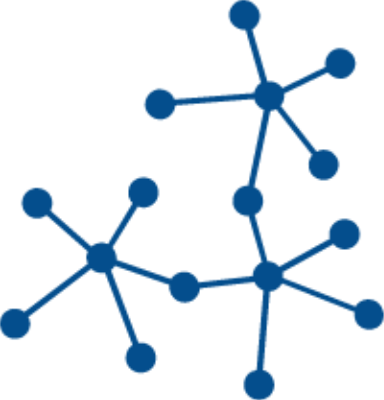Synopsis
The emerging 5G and IoT competitive and distributed environments call for decentralized and scalable solutions for efficient resource allocation. In that respect the focus of REALISM is placed on the design, analysis and evaluation of a novel decision-making paradigm, where actions among the involved entities are interdependent due to the shared nature of the allocated resources, while these actions are taken autonomously by devices interacting with each other. This is based on a game theoretical solution concept referred to as satisfaction equilibrium, as well as on the exploitation of the Prospect Theory in order to integrate risk preferences in the overall process. We further complement the realism of our novel resource allocation paradigm in wireless networks, by integrating learning approaches in the considered games to reduce the impact of wireless environment dynamicity, as well as the lack of detailed knowledge or complete information about the actions of the rest of the users.
Project Originality
The scientific novelty and originality of REALISM is that it aims at introducing holistic approaches, methodologies, and tools, for treating in an efficient and realistic manner the emerging resource management problems in competitive and interdependent environments, also characterized by resource uncertainty and risk-seeking users. Despite the generality of the introduced framework, in this project focus is placed on emerging wireless communications and computing networks, including primarily 5G wireless access technologies and Mobile Edge Computing, where multiple resources of different nature and properties need to be jointly allocated. In particular, a novel resource allocation paradigm will be introduced, where by rethinking the overall traditional Quality of Service (QoS) provisioning and user experience perception in wireless networks that targeted QoS maximization, we will devise more energy-efficient, scalable, and rewarding solutions from both practical and theoretical viewpoints. QoS Satisfaction Equilibrium and Prospect Theory constitute a concrete, theoretical framework that can be the basis on which a foundation to achieve this key objective will be built.
Expected results & Research Project Impact
REALISM aims at producing research results that will allow the realization of a radical breakthrough in how realistic game theoretical approaches and prospect theory, can become the theoretic foundation platform for effective resource allocation in future networks. Οwing to adaptability, flexibility and autonomicity features of REALISM framework, the future networking vision of self-managed networks/nodes will have a concrete theoretical framework to be supported by.
REALISM will not only lay the foundations of a solid theoretical network design framework, but it has the potential to influence industrial thinking on the technologies of next-generation networks, as it may lead to the rethinking and re-engineering of the design and operation of a great number of existing approaches, protocols and architectures, and provide the paradigm shift towards the creation and design of feasible energy-efficient protocols.
The accomplishment of our ambitious goals may potentially impact both industry and user society via leading on the one hand to lower management and operational cost for providers, and on the other hand to energy-efficient solutions and personalized users’ satisfaction treatment.
